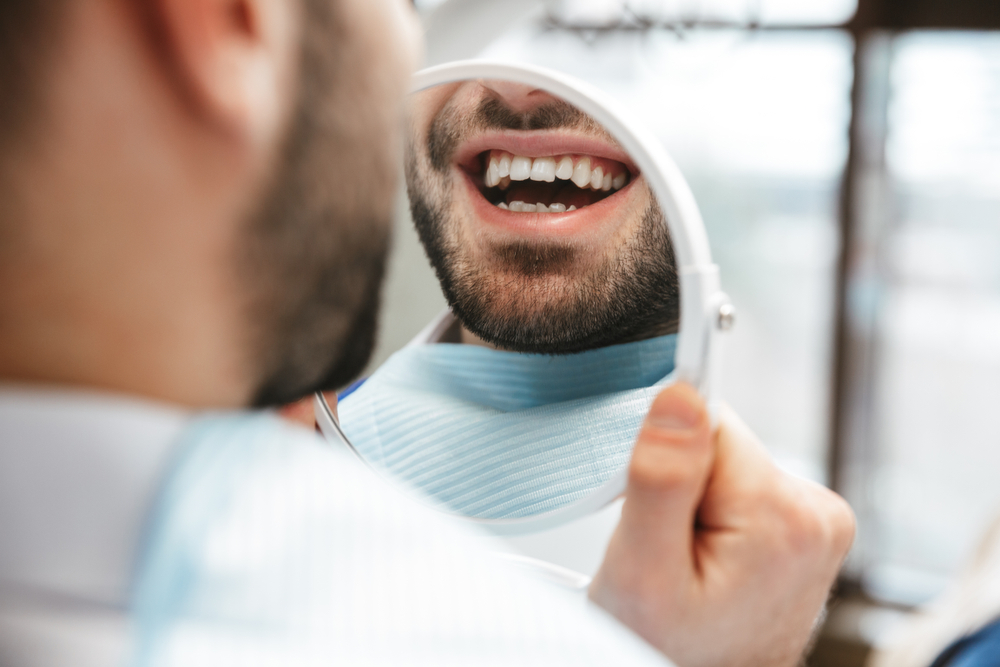Extractions

At Glen Ellyn Dentistry, we strongly emphasize general and preventive dentistry in addition to restorative treatments designed to preserve our patients’ natural teeth. Sometimes, however, a tooth can become so severely damaged or decayed that it is beyond repair. In these cases, extraction is necessary to prevent more serious oral health complications from developing. In other situations, a tooth might need to be extracted as a part of a more complex oral treatment plan.
Why You Might Need To Have a Tooth Extracted
There are several reasons why you might need to have a tooth extracted. Some of the most common reasons for tooth extraction include:
- A significantly damaged or diseased tooth that cannot be saved with a root canal and dental crown
- Advanced periodontal disease that has deteriorated the jawbone and/or periodontal ligaments
- Baby teeth that prevent the eruption of permanent teeth
- Extra teeth
- Impacted wisdom teeth
- Removal of a malformed tooth
- Preparation for orthodontic treatment
- Preparation for full dentures
Our dentists always thoroughly discuss tooth extraction with patients before their extraction appointments. We want to be sure that our patients understand why they need to have a tooth extracted and are fully prepared for the procedure.
What To Expect When Having a Tooth Pulled
The process for having a tooth pulled can vary depending on the state of the tooth and the type of tooth extraction required. For example, the process of a molar extraction, broken tooth extraction, or pulling an infected tooth can differ quite a lot.
The tooth extraction process always begins with an examination and a set of digital dental X-rays. We use these X-rays to evaluate the state of the tooth below the gum line. This can help us determine whether we can extract a tooth in a single piece or if it needs to be extracted in multiple pieces.
We begin the procedure with the administration of a local anesthetic. This ensures that the extraction site remains completely numb throughout the procedure. As a result, patients do not experience any pain during the process. While you might experience a slight sensation of pressure in your mouth, having a tooth extracted should not hurt.
Once our patient has been anesthetized, our dentist uses a dental tool called an elevator to loosen the periodontal ligaments and gum tissues from the base of the tooth. This allows us to lift the tooth. We then use a set of dental forceps to gently rock the tooth back and forth in the socket until it breaks free.
In certain cases, a tooth cannot be removed whole. In these instances, our dentist first determines a plan for strategically breaking the tooth into pieces so that the smaller bits can be removed one by one.
For more complex cases, such as impacted wisdom teeth, we might refer you to an oral surgeon for a surgical extraction.
Tooth Extraction Aftercare and Recovery
After an extraction, we provide patients with thorough aftercare instructions to help prevent recovery complications and accelerate healing. While you might have some specific instructions, depending on your situation, general tooth extraction recovery instructions include the following:
- Gently clean the extraction site with water and/or an antimicrobial rinse using the syringe provided by our office.
- Do not brush the extraction site directly.
- Avoid strenuous activities for at least two days.
- Keep your head elevated to reduce swelling.
- Use a cold compress to alleviate swelling.
- Do not suck on a straw or anything else to avoid dislodging the blood clot and getting a dry socket.
- Avoid hot, spicy, and hard foods.
- Take all medications as instructed. Medications might include antibiotics or pain relievers. Typically, over-the-counter ibuprofen or acetaminophen are adequate for pain relief.
Tooth Extraction and Restoration Options at Glen Ellyn Dentistry
To learn more about tooth extraction, aftercare, and tooth-replacement treatment options, we welcome you to contact Glen Ellyn Dentistry at 630-942-0727 to request an appointment today.


